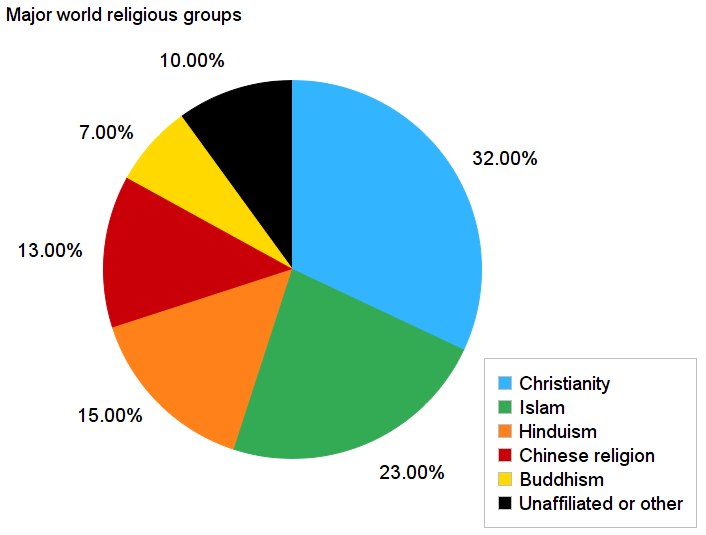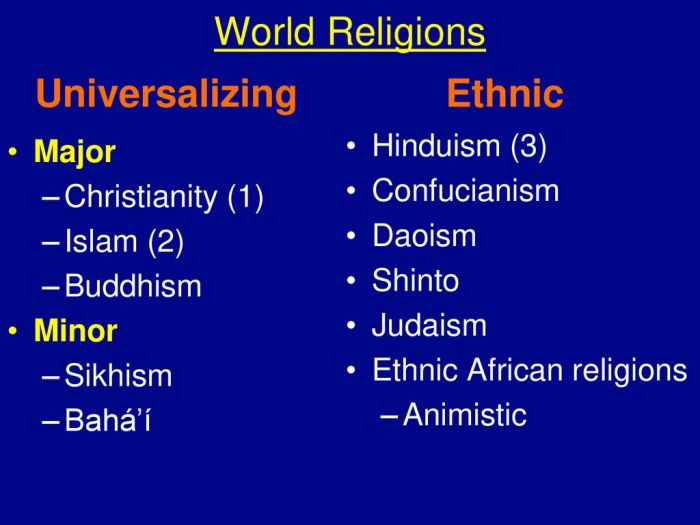Is Sikhism universalizing or ethnic? This inquiry delves into the intriguing interplay between the universalizing elements of Sikhism, which promote inclusivity and equality, and its ethnic aspects, which contribute to a distinct Sikh identity. As we explore the historical context, key teachings, and cultural practices of Sikhism, we will uncover the tensions and synergies that shape this dynamic religion.
Sikhism emerged in the 15th century, founded by Guru Nanak and a succession of Sikh gurus. The Sikh holy book, the Guru Granth Sahib, serves as the central guide for Sikh beliefs and practices. Sikhism emphasizes the oneness of God, the equality of all human beings, and the importance of community (Sangat).
Historical Context
Sikhism emerged in the 15th century in the Punjab region of South Asia, founded by Guru Nanak.
Guru Nanak’s teachings emphasized the unity of God, the equality of all human beings, and the importance of leading an ethical life.
Ten successive Gurus after Guru Nanak further developed Sikhism, compiling its holy book, the Guru Granth Sahib, which became the ultimate authority for Sikhs.
Universalizing Elements

Sikhism promotes universalism through its core beliefs:
- Belief in One God:Sikhs believe in a single, transcendent God known as Waheguru.
- Equality of All Human Beings:Sikhism rejects caste and social hierarchy, emphasizing the inherent worth of every individual.
- Concept of Sangat:The Sikh community (Sangat) is open to all, fostering inclusivity and a sense of belonging.
Sikh practices also reflect universalizing principles:
- Langar:A free communal meal served in Sikh gurdwaras, open to all regardless of background.
- Kirtan:Devotional singing and music that transcends linguistic and cultural boundaries.
Ethnic Elements

Sikhism has developed a distinct ethnic identity over time:
- Sikh Panth:The Sikh community has a strong sense of unity and shared identity.
- Sikh Symbols:Symbols such as the turban and khanda represent Sikh heritage and distinctiveness.
- Punjabi Language and Culture:Sikhism is closely tied to the Punjabi language and culture, which play a significant role in its traditions.
Sikh practices also reflect ethnic traditions:
- Anand Karaj:The Sikh marriage ceremony, which follows specific rituals and customs.
- Sikh Festivals:Festivals such as Vaisakhi and Diwali celebrate Sikh history and culture.
Tension between Universalizing and Ethnic Elements: Is Sikhism Universalizing Or Ethnic
The tension between universalizing and ethnic elements arises in areas such as:
- Identity and Belonging:While Sikhism promotes universalism, it also values ethnic identity and community.
- Religious Practices:Some Sikh practices, such as the wearing of the turban, may be seen as both a universal symbol and an ethnic marker.
- Interfaith Relations:Sikhs may face challenges in balancing their universal beliefs with their ethnic identity in interfaith interactions.
Sikh leaders have addressed this tension by emphasizing the importance of both elements:
- Guru Nanak’s Teachings:Guru Nanak taught that “there is no Hindu, no Muslim,” promoting unity beyond religious differences.
- Concept of Seva:Sikhs are encouraged to engage in selfless service to humanity, regardless of background.
FAQ Corner
Is Sikhism a universalizing religion?
Yes, Sikhism promotes universal principles such as the oneness of God, equality of all human beings, and the importance of compassion and service.
Does Sikhism emphasize ethnic identity?
Yes, Sikhism has a strong sense of community and shared cultural practices that contribute to a distinct Sikh identity.
How do Sikhs balance universal beliefs with ethnic identity?
Sikhs navigate this balance through practices that promote both inclusivity and the preservation of Sikh traditions and values.